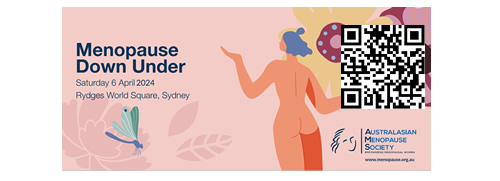Two articles have appeared recently examining the risk benefit ratio of menopausal hormone replacement. The first, which constitutes Level 1a evidence, is a meta-analysis of 43 randomised controlled trials of HRT v placebo and effect on mortality [Benkhadra et al J Clin Endocrinol Metab 100: 4021–4028, 2015). This analysis found no effect on menopausal HRT overall on mortality. The authors’ conclusion is that current evidence suggests that HRT does not affect the risk of death from all causes, cardiac death and death from stroke or cancer. In 5 of the 43 trials, menopausal HRT was started at a younger age, i.e. less than 60 years or within 10 years of menopause. The meta-analysis of these 5 RCTs showed a reduction of mortality with HRT (RR 0.70 [95% CI 0.52–0.95]).
The second study, which constitutes a Level 3b study and which has received some recent publicity is a case-control study of patients diagnosed with breast cancer and those who were partners of men with cancer but free of cancer themselves [Salagame et al Int J Cancer doi: 10.1002/ijc.29942 Epub ahead of print]. Menopausal HRT use is documented by recall. This study reports an increase in breast cancer with both oestrogen-only and combined oestrogen + progestin use for participants who were currently using HRT at the time of diagnosis, but not for those who were past users. It examines diagnosis rather than mortality.
When discussing risks and benefits with patients there are a few points to be made in relation to these studies.
The level of evidence in the Salagame study is 3b v 1a in the meta-analyses and RCTs. The findings regarding oestrogen only HRT are at odds with the randomised controls trials and with the re-analysis of the Nurses’ Health Study. The findings regarding combined HRT are compatible with the previous studies.
The greatest threat to women’s health after menopause is cardiovascular disease and the recent Cochrane Collaboration meta-analysis (Level 1a evidence) has found a reduction in coronary heart disease (RR 0.52, 95% CI 0.29 to 0.96) in women who start HRT less than 10 years past the last menstrual period [Boardman et al Cochrane Database of Systematic Reviews. 2015;3:CD002229]
Content updated 7 December 2015






